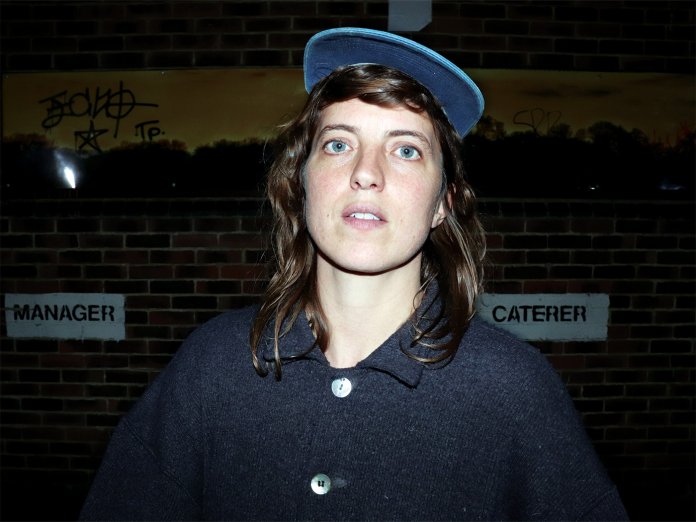You can tell a lot about people from the company they keep – and by extension, about their creative expression. Take Rosalind Leyden, for instance, who’s consorted with wayward folkies, mercurial indie-pop types and experimental jazz practitioners. Early on, she played with fellow Winchester-bor...
You can tell a lot about people from the company they keep – and by extension, about their creative expression. Take Rosalind Leyden, for instance, who’s consorted with wayward folkies, mercurial indie-pop types and experimental jazz practitioners. Early on, she played with fellow Winchester-born songwriter Kate Stables (whose This Is The Kit she’s a member of), Rachael Dadd and François Marry (of The Atlas Mountains); later, a friendship with Pictish Trail and King Creosote led to her debut as Rozi Plain and the release of four albums on Fence/Lost Map, which featured increasingly large casts of simpático players.
Though circumstances such as musicians’ availability or geographical separation have often given Leyden no choice, wide collaboration became a preferred practice, and with 2019’s terrific What A Boost, her orbit exerted a pull on musicians connected to London’s Total Refreshment Centre. Now, her free-wheeling spirit has drawn in even more accordant talent for the dazzling Prize.
Co-produced by Leyden with Jamie Whitby Coles, the drummer in her core band (also of This Is The Kit), it’s an instantly captivating set – 10 resonant but unfussy songs distinguished by a balance of up-close intimacy and understatedly elegant composition, attuned to the power of repetitive flow. They were written and demoed through 2020 and 2021, after Leyden’s return from the Isle of Eigg, where she’d been making an EP for Lost Map’s Visitation series, and recorded last October, for the most part at a beachside studio in France. Among those augmenting Leyden’s regular bass/drums/synth trio (she plays a self-built electric guitar) are avant-jazz saxophonists Alabaster DePlume and Cole Pulice, harp player Serafina Steer and violinist Emma Smith (both of Bas Jan), singer Yoshino Shigihara (Yama Warashi) and synth manipulator Dan Leavers aka Danalogue (The Comet Is Coming).
The set opens with “Agreeing For Two”, a dulcet symphony whose spine is a simple guitar pattern that tugs Leyden’s alluringly warm, unmannered voice along with it, its nervous system a bright and jaunty synth motif. “Complicated” follows, almost contradicting its own title as a shimmering dream of a tune with steel drum work, and already it’s clear that this record conjures a singular environment – one outside of time, seemingly unbounded by gravity and with a nuanced weather system. Leyden once revealed that The Beta Band and Arab Strap’s first LPs were early inspirations because the guitar playing chimed with her own tastes. Her music, though, evolved into something far more light and airy, with a silvery, almost mirage-like quality, leaning on circular and push-pull rhythms. It’s maybe a stretch to claim Leyden’s time spent painting boats and taking tickets on Bristol harbour ferries had an impact, but open space, zephyr-like melodies and ebb-and-flow rhythms have always been a feature. So it is with Prize.
Its mix of folk, leftfield pop and pastoral jazz is calming, with an air of contemplation running through – the autumnal “Prove Your Good” (“What do we want? / Less / Do you want more? / Yes”), with its flavour of the Chicago underground, and the undulating bass and piano/synth interplay in the questing “Conversation” (“What is it if it’s not? / Is it love when it stops?”) are prime examples – but not to the exclusion of all other moods. Around the two-thirds mark, the elegiac “Painted The Room” takes flight on winking, space-disco wings, while the winnowing loveliness of “Spot Thirteen” is too transportive by half to lend itself to reflection. Somewhere in between sits “Standing Up”, whose languid, see-saw rhythm gives it a quivering energy that seems to briefly fix time in a holding pattern, until it’s released by crosscurrents of trilling synths. All are luminous songs with intriguingly opaque, deeply interrogatory lyrics and a kind of free-floating poise, though they’re far too tuneful to be called abstract.
Prize suggests Talk Talk, Grouper, Joni Mitchell, Eberhard Weber and The Weather Station as kindred spirits, but aside from her associates present here, there are few UK pop outliers with such a particular, expansive aesthetic as Leyden’s. “With elastic energy / Circular it has to be”, she sings on the plush, divinely woozy closing track, “Blink”, a reminder that in more ways than one, circles are stronger than straight lines.



